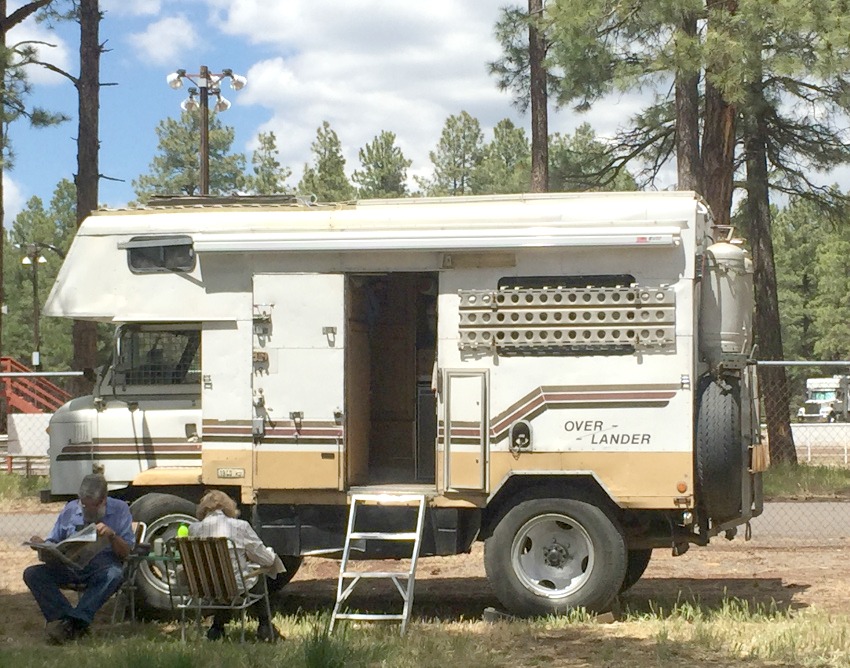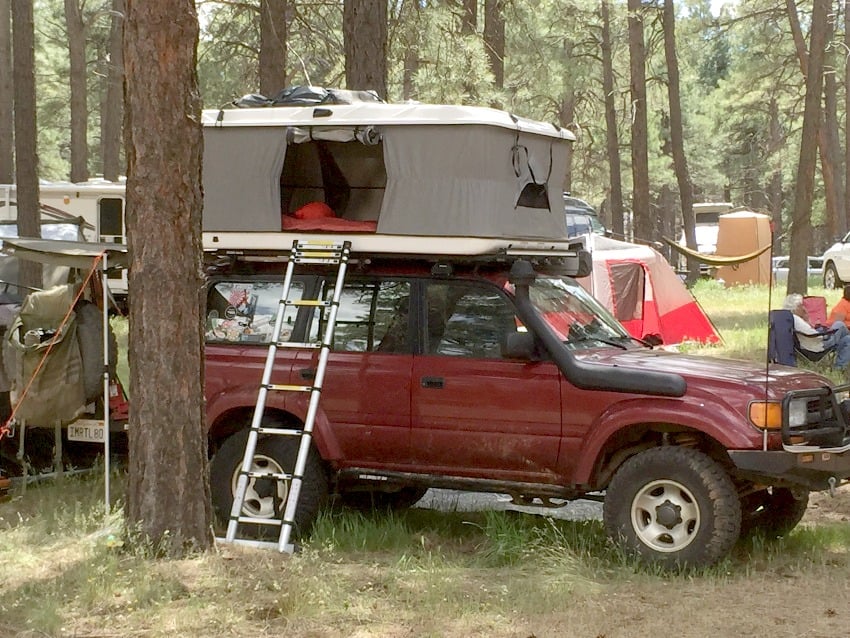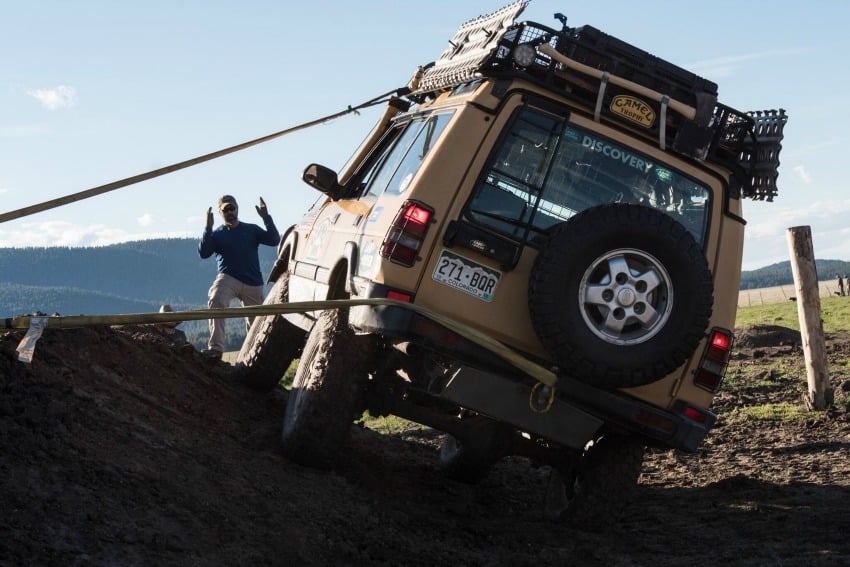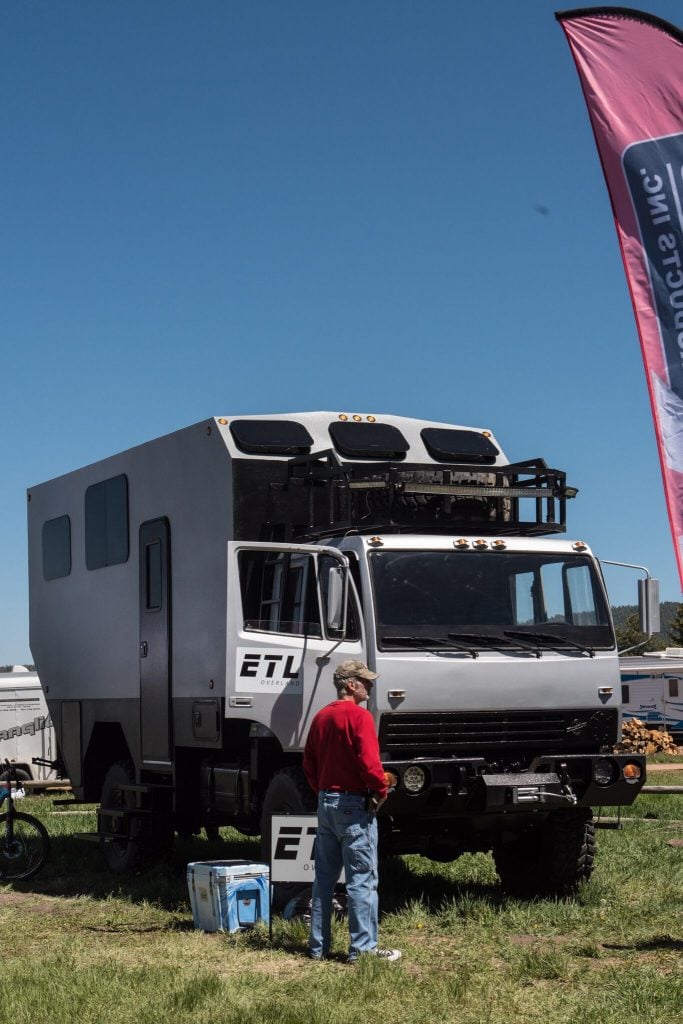Did you give up your tent for RVing, but still miss genuine back country camping? If so, you can still have the best of both worlds. Consider attending the annual Overland Expo for an education in overlanding. Two long-time RVers recently attended their first event and here’s what they learned.
Overland camping and RVing: a match made off the beaten path.
Thousands of overland vehicle owners blend extreme off-road self-contained vehicle camping with the latest comforts, technology, and gear. For example, check out the KiraVan extreme RV. Overland camping and RVing are two different styles of camping but they share much in common. “Overlanding is not “wheeling” or about conquering obstacles with a vehicle or bike,” explains Roseann Hanson, co-director of the Overland Expo. “It’s about using four-wheel drives or adventure motorcycles to explore and camp—whether 100 miles or 10,000 miles from home, on pavement, backroads, or highly technical terrain.”
Each year thousands of overlanding enthusiasts travel to the springtime Overland Expo West in Arizona, or the fall Overland Expo East in North Carolina. They come for a three-day rally with dry camping, education sessions, demos, vendors and more. Although large RVs over 30 feet cannot be accommodated, other camping options are nearby.
Two RVer’s tips for Overland Expo:
Larry Chiuppi and Nancy Raimondi attended the 2017 Overland Expo West in Flagstaff, Arizona. As full-time RVers since 1998, the couple often takes short journeys into the outback with “Elmo” their truck camper. Now they’ve retired, they want to leave the RV at home and take Elmo out more often. Attending the Expo seemed like the perfect place to learn how. Here’s what Larry said about the event experience.
How does the overland audience compare to the audience at your typical RV rally?
Totally different, some are “geeks”, but overland “geeks”, so at an RV Rally the talk might be about boondocking vs RV parks, how do you access the Internet, or what emergency roadside assistance program to buy.
The Expo talk is about ground clearance, recovering a vehicle, Personal Emergency Locator Devices, locking hubs, and of course “mods” or modifications to the stock vehicle you drive or the stock camping unit you use.
I don’t think I spoke the words, “full hookup” or even “hookups” the entire time.
Surprisingly, I thought it would be a lot younger crowd. There were a lot of younger people but many people were in their 50s and 60s. Some of it probably has to do with discretionary income.
What was the most valuable thing you learned about your goal to get out into the wilderness with Elmo?
I think it was that there are different levels of “getting into the wilderness” and that you need to set your level of preparedness accordingly.
I can comfortably go lots of places now, but I plan to buy a few items, such as tires and springs, an emergency communication device, and maybe investing in some recovery equipment before going to some other places.
Also, ideally, if you are going way “out there” you probably want to travel with another vehicle.
Were the takeaways and tips that you learned at the Expo realistic for the “average” person (financially and/or mechanically)?
Yes – for example, I learned a lot about tires, now it’s just a matter of shopping for the recommended tires at a price I can afford. There are many manufacturers that produce the type of tire I need, and so I may want BF Goodrich all terrain tires, but may settle for a Cooper All terrain tires based on price.
There were both intro level hands on courses as well as advanced courses. Some courses actually had recommended prerequisites.
Would you go again?
ABSOLUTELY! The only question is do we buy the expensive Overland Experience Package, which includes unlimited class attendance, or just the weekend package which doesn’t allow attendance to classes?
There are plenty of non-class things to do, but there are also some advanced classes that I didn’t take that I would like to take.
Visit Overland Expo for more information about the twice yearly event.





Leave a Reply